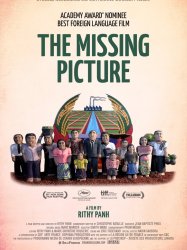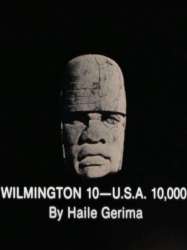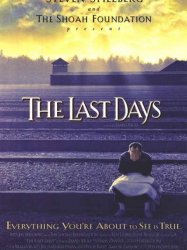Mendez vs. Westminster: For All the Children is a american film of genre Documentary
Mendez vs. Westminster: For All the Children (2003)

If you like this film, let us know!
- Infos
- Casting
- Technical infos
- Photos
- Videos
- Film quotes
- Characters
- Music
- Awards
Mendez vs. Westminster: For All the Children/Para Todos los Niños is a 2003 American documentary film written, directed, and produced by Sandra Robbie. The film features Sylvia Mendez, Robert L. Carter, and others.
Synopsis
In the mid-1940s, a tenant farmer named Gonzalo Mendez moved his family to the predominantly white Westminster district in Orange County and his children were denied admission to the public school on Seventeenth Street. The Mendez family move was prompted by the opportunity to lease a 60-acre (240,000 m) farm in Westminster from the Munemitsus, a Japanese family who had been relocated to a Japanese internment camp during World War II. The income the Mendez family earned from the farm enabled them to hire attorney David Marcus and pursue litigation.Comments
Leave comment :
Suggestions of similar film to Mendez vs. Westminster: For All the Children
There are 8985 with the same cinematographic genres, 3221 films with the same themes (including 195 films with the same 4 themes than Mendez vs. Westminster: For All the Children), to have finally 70 suggestions of similar films.If you liked Mendez vs. Westminster: For All the Children, you will probably like those similar films :

The Missing Picture (2013)
, 1h32Directed by Rithy Panh
Origin France
Genres War, Documentary, Historical, Animation
Themes Politique, Films about racism, Documentary films about racism, Documentary films about law, Documentary films about war, Documentary films about historical events, Documentaire sur une personnalité, Political films, Autobiographical documentary films
Actors Randal Douc, Jean-Baptiste Phou, Rithy Panh
Rating72%





En utilisant des figurines d'argile et des images d'archive, Rithy Panh témoigne des atrocités commises par les Khmers rouges au Cambodge entre 1975 et 1979.

Umurage (2002)
, 52minutesOrigin Espagne
Genres Documentary
Themes Films set in Africa, Films about racism, Documentary films about racism, Documentary films about law, Documentary films about war, Documentary films about historical events, Documentaire sur une personnalité, Documentary films about politics, Political films
In Rwanda, a hundred members of the Ukuri Kuganze Association, made up in its majority by survivors of the genocide, and a few of their executioners, freed after having confessed and asked for forgiveness in 2003, meet at a reinsertion center. These executioners are going home, in most cases to the same places where they carried out their crimes, and will have to "face" their victims and ask their forgiveness. In 1994, over a space of just one hundred days, almost a million people were murdered, that makes 10,000 dead per day.
 , 1h31
, 1h31Directed by Peter Raymont
Origin Canada
Genres Documentary
Themes Films set in Africa, Films about racism, Documentary films about racism, Documentary films about law, Documentary films about war, Documentary films about historical events, Documentaire sur une personnalité, Documentary films about politics, Political films
Rating80%





Between April and June 1994, an estimated 800,000 Rwandans were killed in 100 days. Most of the dead were Tutsis by the hands of the Hutus. The genocide began when Rwandan president Juvenal Habyarimana's plane was shot down above Kigali airport on April 6, 1994.

Aghet (2010)
, 1h33Origin German
Genres Documentary, Historical
Themes Films about racism, Documentary films about racism, Documentary films about law, Documentary films about war, Documentary films about historical events, Documentaire sur une personnalité, Political films
Actors Martina Gedeck, Sylvester Groth, Joachim Król, Sandra Hüller, Hanns Zischler, Burghart Klaußner
Rating68%





Aghet, se traduisant par « catastrophe » en arménien, est le mot utilisé pour désigner le massacre de plus d'un million d'Arméniens de l'Empire ottoman de 1915 à 1917. Le documentaire débute en évoquant le meurtre du journaliste Hrant Dink pour continuer sur le refus de la Turquie de reconnaître le génocide, les déclarations du premier ministre turc Recep Tayyip Erdogan ou encore le refus d'intervention du gouvernement impérial de l'Allemagne à l'époque, préfiguration d'un autre génocide, celui de la Shoah.

Goodbye Uncle Tom (1971)
, 2h20Directed by Francesco Prosperi, Gualtiero Jacopetti, Franco E. Prosperi
Origin Italie
Genres Drama, Documentary, Horror, Historical, Crime
Themes Films about slavery, Films about racism, Documentary films about racism, Documentary films about law, Documentary films about historical events, Documentaire sur une personnalité
Actors Gualtiero Jacopetti, Susan Hampshire, Franco E. Prosperi, Geoffrey Copleston
Rating65%





Le film a été tourné quelques années après Africa addio, à l'origine de polémiques idéologiques, dues à la description des difficultés en tous genres du continent africain après la fin du colonialisme européen.

Directed by Hailé Gerima
Origin USA
Genres Documentary
Themes Films about racism, Documentary films about racism, Documentary films about law, Documentary films about historical events, Documentaire sur une personnalité
1978's Wilmington 10—USA 10,000 examined the impact of racism and the short-comings of the criminal justice system by examining the history of the nine black men and one white woman who became known as the "Wilmington Ten."

The Last Days (1998)
, 1h27Directed by James Moll
Genres Drama, War, Documentary, Historical
Themes Films about racism, Films about religion, Documentary films about racism, Documentary films about law, Documentary films about war, Documentary films about historical events, Documentaire sur une personnalité, Documentary films about religion, Political films, Films about Jews and Judaism, Documentary films about World War II
Rating78%





Le documentaire relate l'histoire de cinq juifs hongrois durant l'holocauste, en s'intéressant notamment à la vie dans les camps de concentration et au désir de vivre des prisonniers.
 , 1h27
, 1h27Origin USA
Genres Documentary
Themes Films about racism, Documentary films about racism, Documentary films about law, Documentary films about historical events, Documentaire sur une personnalité
Rating73%






Motherland (2010)
, 1h58Directed by Owen 'Alik Shahadah
Origin USA
Genres Documentary
Themes Films set in Africa, Films about slavery, Films about racism, Documentary films about racism, Documentary films about law, Documentary films about historical events, Documentaire sur une personnalité, Documentary films about politics, Political films
Actors Harry Belafonte, Abdulkadir Ahmed Said
Rating82%





Motherland is an epic documentary about the African continent from Ancient Egypt to the present. It is an overview of African history and contemporary issues but with the African people at the centre of the story. It is one of the first Pan-African features to be made.

Death of Apartheid (1995)
, 50minutesDirected by Mick Gold
Origin United-kingdom
Genres Documentary
Themes Films set in Africa, Films about racism, Documentary films about racism, Documentary films about law, Documentaire sur une personnalité, Documentary films about politics, Political films
Rating66%





 Connection
Connection